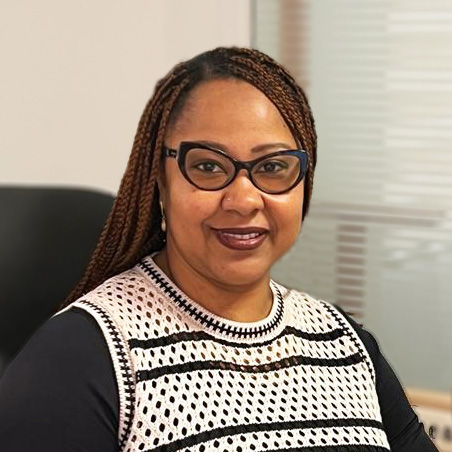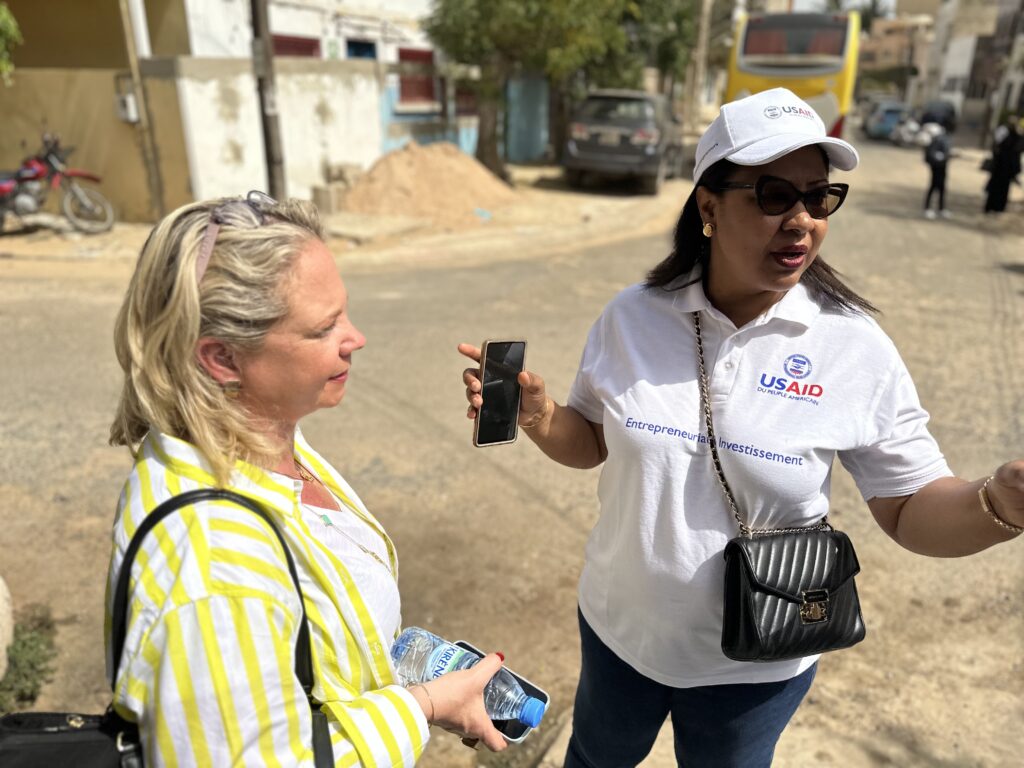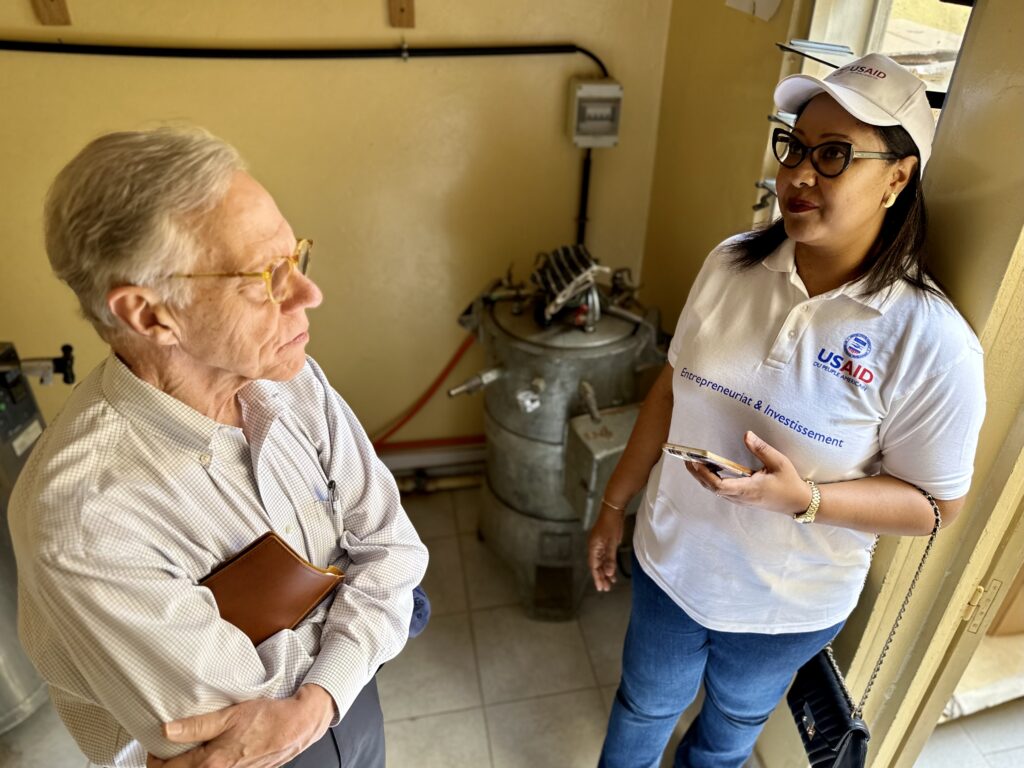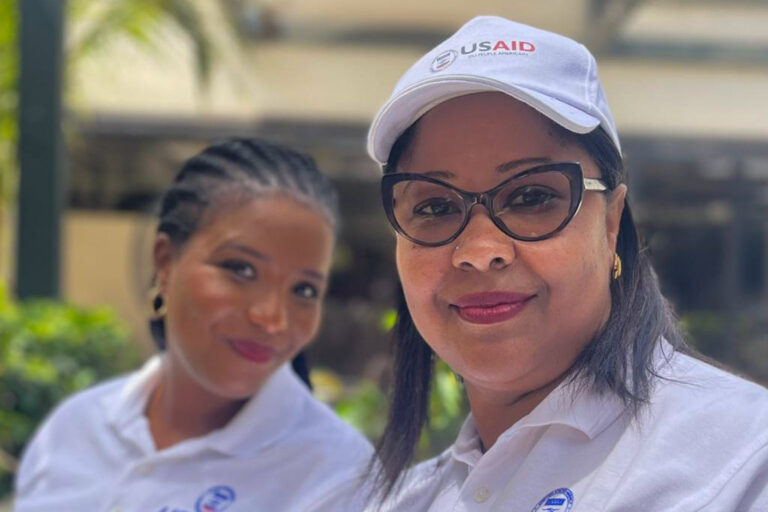Accelerating inclusive investment and progress: the rise of Senegalese women entrepreneurs

Dieynaba S. Thiam-Ka, a Senegalese leader, is chief of party of the five-year USAID Entrepreneurship & Investment Activity implemented by Winrock International in Senegal.
The goal of the team she leads is to promote entrepreneurship and business investment in collaboration with communities, Senegal’s government and the private sector – and to inclusively increase access to services for enterprises and entrepreneurs that boost investment, create employment opportunities and drive positive social change in the youthful, fast-growing nation.
Dieynaba says a central piece of the project’s strategy from startup – and a significant source of its success so far – is partnering with local companies, organizations and government to engage women entrepreneurs across all levels of Senegalese society.
The approach helps to ensure “no woman is left behind, whether she is a highly skilled and trained CEO of a small-to-medium sized enterprise or an equally deserving rural woman owning a small food processing company or a member of a women’s group,” she says.
Dieynaba recently asked her team to summarize some of their approaches to illustrate how the project co-designs activities and builds partnerships that place women “front-and-center in our project’s quest to support entrepreneurs.” Here’s what they said:
“We’re inspiring them to be confident and act on business ideas that lead to financial independence and empowerment through better access to information, hands-on training sessions, networking with peers for increased market opportunities and a strengthened Gender Equality and Social Inclusion strategy. Our project is co-producing a series of podcasts titled Conversations Féminines targeting urban women entrepreneurs. The concept was inspired by community radio shows — also initiated by the project and broadcast in rural areas — to inform entrepreneurs, especially women-led economic groups, about existing opportunities and to encourage them through peer-to-peer learning and success stories.”

“We’re partnering to improve capacity building services for women and by women through a network of Business Development Service Providers led by women. Training includes financial education, accounting, digital marketing, management and soft skills.”

“We’re working with community groups on gender-responsive financing, with innovative financial products exclusively dedicated to women to ensure access and relevance. We helped develop an equity investment mechanism with a Women’s Investment Club, and a debt-funding line called Ellever [which means ‘to rise up’ in French] with Ecobank. In addition, the project co-constructed an innovative financial mechanism with microfinance institutions to provide accessible loans to entrepreneurs in secondary cities where a majority of women have been excluded from the classic financial sector.”
As International Women’s Day 2024 approaches – a day for celebrating women’s achievements, raising awareness of discrimination and taking action to drive gender parity – the USAID Entrepreneurship & Investment project team also provided some selected data points that help the project measure its traction amongst women in the West African country. In its first 2.5 years, the USAID Entrepreneurship & Investment Activity has:
The theme for International Women’s Day 2024, an annual U.N. observance, is: Invest in Women: Accelerate Progress.
Dieynaba explains that this year’s theme echoes the E&I activity’s core values and objectives. Women are a priority target as they are generally excluded from access to financial and non-financial services and assets such as land.
She adds:
“It’s important to ensure that women understand their worth and their potential and are given equal chances to their male counterparts through training and access to capital. Socially in Senegal, women are the pillars of the households, so ensuring women’s economic empowerment also means higher education for children, better healthcare and overall improved living conditions, and ultimately, economic growth.”
Related Projects

